 W
WJorge Enrique Adoum خورخي انريكي قَدُّوم was an Ecuadorian writer, poet, politician, and diplomat. He was one of the major exponents of Latin American poetry. His work received such prestigious awards as the first Casa de las Américas Prize in Cuba, the most important honor in Latin American letters. Though hailed by Nobel Prize winner Pablo Neruda as the best poet of his generation in Latin America, Adoum’s work is unknown in the English-speaking world.
 W
WJuan Bautista Aguirre y Carbo was a notable poet and writer from colonial South America. He is considered one of the precursors of Hispanic and Ecuadorian poetry.
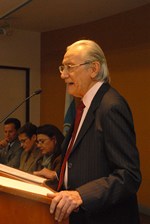 W
WSergio Román Armendáriz is an Ecuadorian poet, playwright, and university teacher.
 W
WArturo Borja Pérez was an Ecuadorian poet who was part of a group known as the "Generación decapitada". He was the first in the group to excel as a modernist poet. He did not produce a lot of poetry, but the small amount of poetry he produced showed great quality. He published twenty poems in a book titled La flauta de ónix, and six other poems were published posthumously. The group is called "decapitada", or decapitated, because all its members committed suicide at a young age.
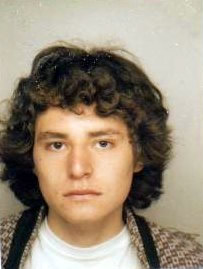 W
WOswaldo Calisto Rivera, also known as Cachibache was an Ecuadorian poet and artist who completed over 100 paintings.
 W
WJorge Carrera Andrade was an Ecuadorian poet, historian, author, and diplomat during the 20th century. He was born in Quito, Ecuador in 1902. He died in 1978. During his life and after his death he has been recognized with Jorge Luis Borges, Vicente Huidobro, Gabriela Mistral, Pablo Neruda, Octavio Paz and Cesar Vallejo as one of the most important Latin American poets of the twentieth century.
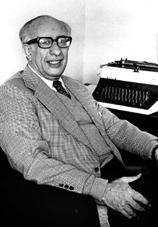 W
WAlejandro Carrión Aguirre was a poet, novelist and journalist. He wrote the novel La espina (1959), the short story book La manzana dañada (1983), and numerous poetry books. As a journalist he published many of his articles under the pseudonym "Juan Sin Cielo." In 1956 he founded, along with Pedro Jorge Vera, the political magazine La Calle. He directed the literary magazine Letras del Ecuador. He received the Maria Moors Cabot prize (1961) from the Columbia University Graduate School of Journalism as well as the Ecuadorian National Prize Premio Eugenio Espejo (1981) for his body of work. He was the nephew of Benjamín Carrión and Clodoveo Carrión.
 W
WLuis Alberto Costales Cazar was an Ecuadorian poet, philosopher, teacher, speaker, historian, farmer and politician.
 W
WMaría Fernanda Espinosa Garcés is an Ecuadorian politician and diplomat. She was the President of the United Nations General Assembly for the 73rd session, office which started in September 2018. She was Minister of National Defense of Ecuador from 28 November 2012 to 23 September 2014. Previously, she served as Minister of Foreign Affairs under President Lenín Moreno from May 2017 to June 2018. She also held several other Ministerial posts before. She served as the Permanent Representative of Ecuador to the United Nations in Geneva from October 2014 to May 2017, and held the same position from 2008 to 2009. Besides her political career she is also a poet and essayist.
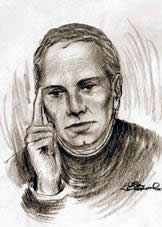 W
WJacinto de Evia was born in Guayaquil in 1629 and died at the beginning of the 18th century. Along with Juan Bautista Aguirre (1725–1786) he is acknowledged as one of the first poets from Ecuador.
 W
WHumberto Fierro was an Ecuadorian poet who was part of a group known as the "Generación decapitada". The group is called "decapitada", or decapitated, because all its members committed suicide at a young age.
 W
WVicente Amador Flor Cedeño was an Ecuadorian poet known for his poems about his native city Portoviejo.
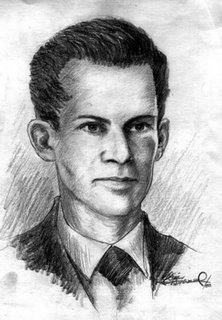 W
WJoaquín Gallegos Lara was an Ecuadorian social realist novelist, short story writer, poet, and essayist.
 W
WAlfredo Gangotena Fernandez Salvador was an Ecuadorian poet who wrote in French and Spanish.
 W
WSonia Guiñansaca is a migrant poet, cultural organizer and activist whose work aims for culture equality and social justice, focusing on migrant rights, climate change, LGBTQ+ rights, and gender discrimination.
 W
WNuma Pompilio Llona was an Ecuadorian poet, journalist, educator, diplomat, and philosopher.
 W
WOctavio Cordero Palacios was an Ecuadorian writer, playwright, poet, mathematician, lawyer, professor and inventor.
 W
WVíctor Manuel Rendón Pérez was an Ecuadorian writer, poet, novelist, playwright, biographer, translator, doctor, diplomat, pianist and composer.
 W
WHugo Salazar Tamariz was an Ecuador poet, novelist and playwright. His writing is marked by socialist realism.
 W
WMedardo Ángel Silva Rodas was an Ecuadorian poet and a member of the Generación decapitada. The "Decapitated Generation" was a group of four young Ecuadorian poets in the first decades of the 20th century. Two men from Guayaquil, Medardo Ángel Silva and Ernesto Noboa y Caamaño, and two men from Quito, Arturo Borja and Humberto Fierro, were the precursors of modernismo in Ecuador. These four writers were greatly influenced by the modernist movement of Rubén Darío and by 19th-century French romantic poetry. Though they knew each other and dedicated poems to each other, they never met together to create a true literary group. The term "generación decapitada" originated in the middle of the 20th century, when Ecuadorian journalists and historians decided to name them, noting similarities in the authors' poetry.
 W
WDolores Veintimilla de Galindo was an Ecuadorian poet.